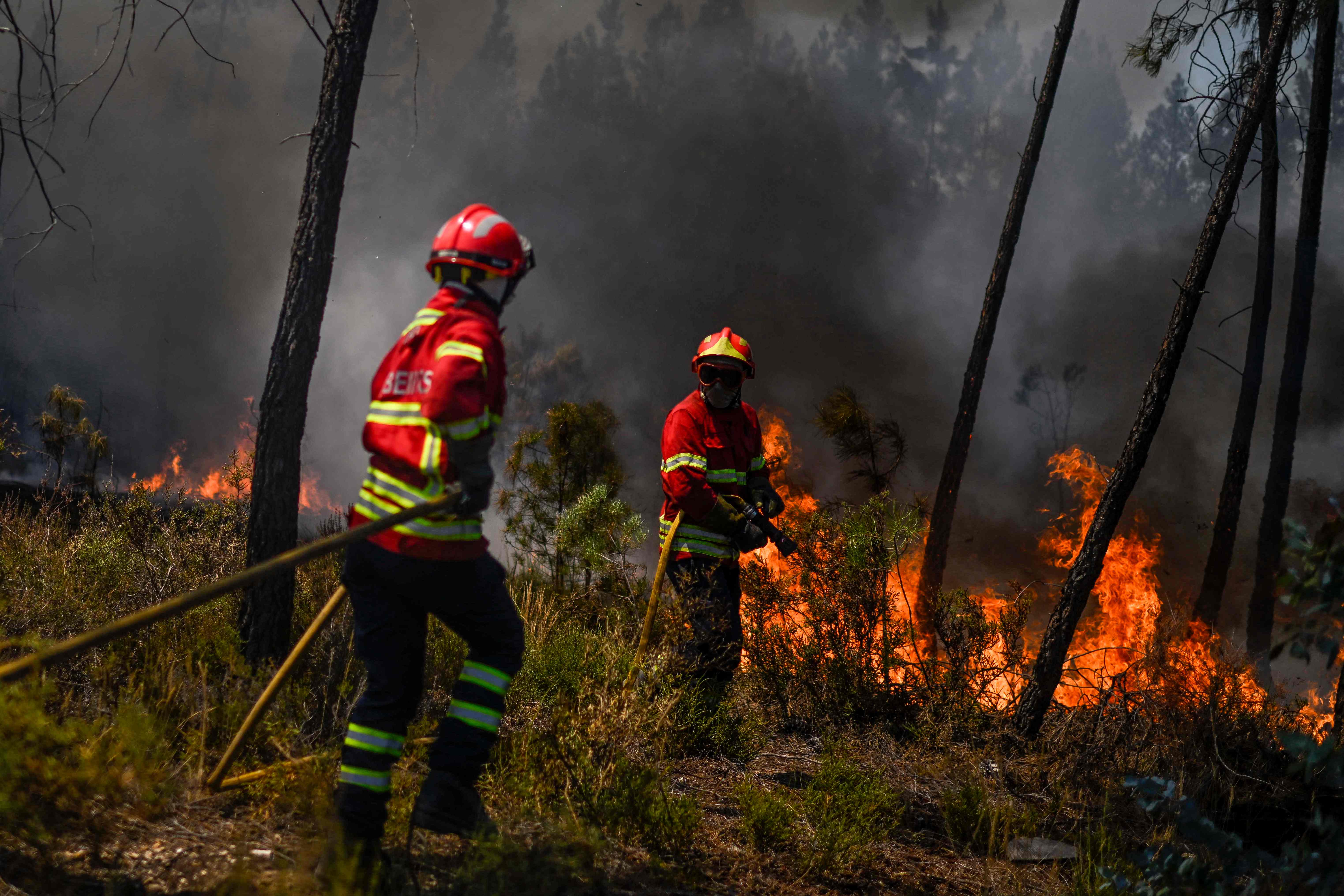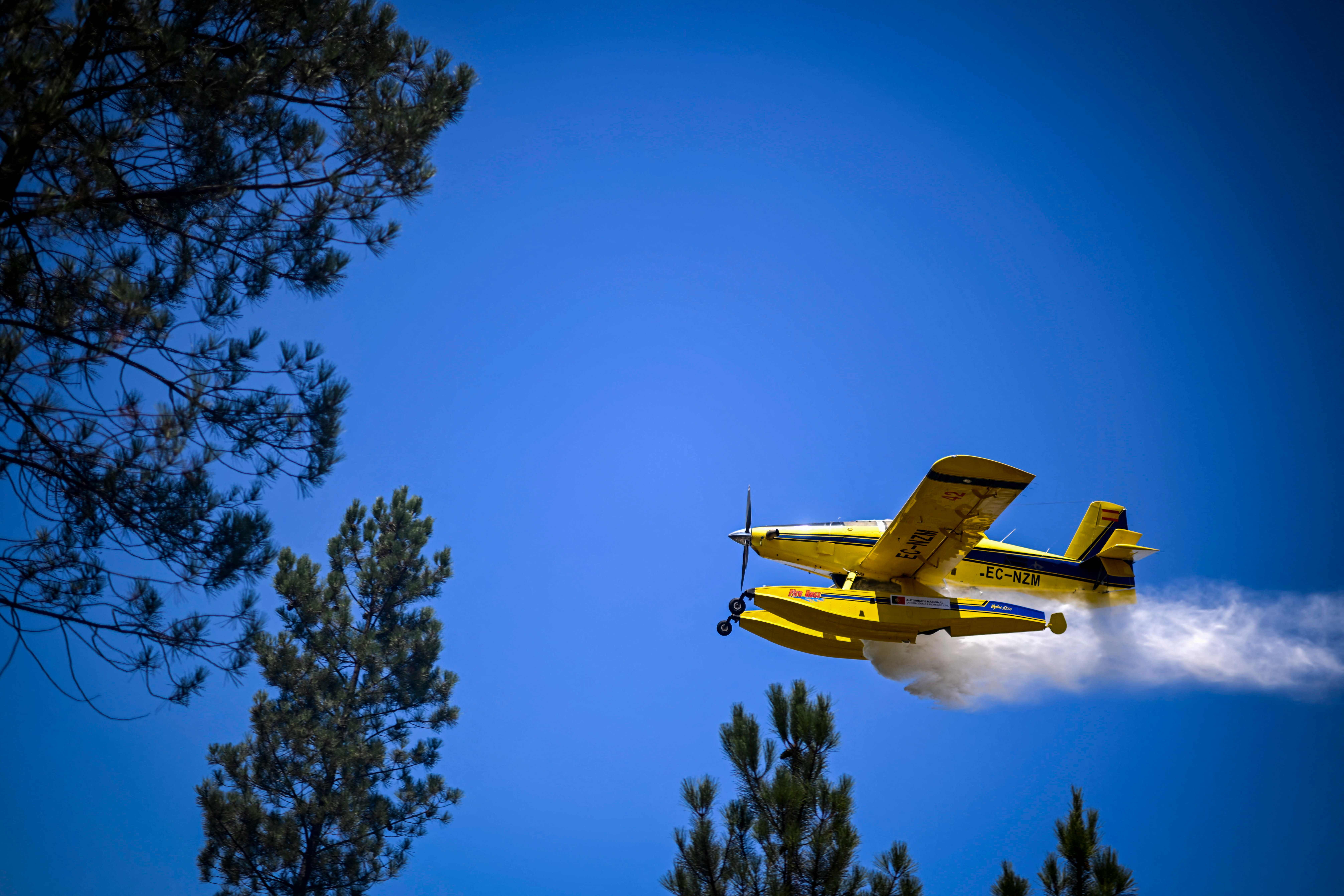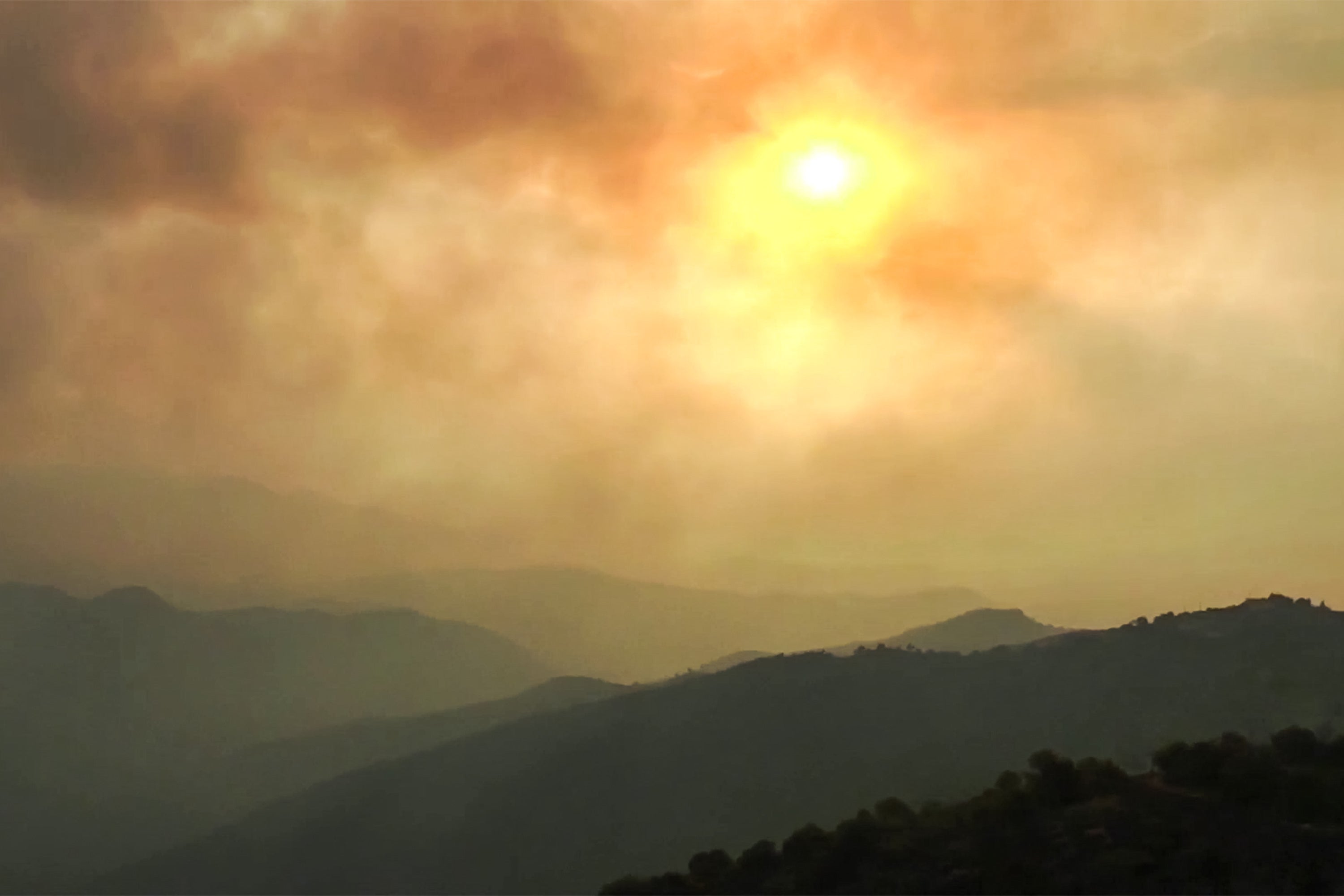Europe wildfires map shows where devastating blazes are sweeping Portugal and Italy
Hundreds of firefighters in Portugal battling inferno sweeping parts of country during 46C heatwave
Your support helps us to tell the story
From reproductive rights to climate change to Big Tech, The Independent is on the ground when the story is developing. Whether it's investigating the financials of Elon Musk's pro-Trump PAC or producing our latest documentary, 'The A Word', which shines a light on the American women fighting for reproductive rights, we know how important it is to parse out the facts from the messaging.
At such a critical moment in US history, we need reporters on the ground. Your donation allows us to keep sending journalists to speak to both sides of the story.
The Independent is trusted by Americans across the entire political spectrum. And unlike many other quality news outlets, we choose not to lock Americans out of our reporting and analysis with paywalls. We believe quality journalism should be available to everyone, paid for by those who can afford it.
Your support makes all the difference.Wildfires have ravaged two countries in Europe this week, forcing thousands of evacuations as firefighters battle on in tinderbox conditions.
Extreme heat and billowing winds have created the perfect storm for fires to rip through swathes of land in Portugal and Italy.
Portugal is facing wildfires raging across the south of the country, with more than 850 firefighters battling to put out the flames. The first wildfire started in the municipality of Odemira, in the Alentejo region on Saturday, but it has since spread south towards the Algarve.

The local mayor confirmed that there are two active fronts in both Odemira and Monchique. Monchique, a lush green mountainous area in the Algarve’s countryside, last burned in 2018. It is popular amongst locals and tourists due to its thermal springs and hotels.
Elsewhere in the country, a fire broke out in Ourém, in the district of Santarém, on Sunday but has since been brought under control. A nearby fire in the district of Leiria - in Caranguejeira and Arrabal - was extinguished on Tuesday morning.
Odemira’s mayor, Helder Guerreiro, called the situation “critical, difficult and complex” while Jose Ribeiro, commander of the emergency and civil protection authority, said there was a “lot of work” ahead to bring the wildfire under control.
The Portugal wildfires have now scorched thousands of hectares of land and forced the evacuation of around 1,400 people.
Follow the latest on wildfires in Portugal here.
Elsewhere, in Italy, wildfires have been spreading across the island of Sardinia.
The Cagliari and Nuoro Provinces have been severely impacted, with 28 active fires in Nuoro Province and 16 in Cagliari Province confirmed by the Italian authorities.
According to local media reports, four people have been injured and at least 600 people have been evacuated, with over 12,000 people cut off from their water supply across the Podasa and Siniscola Municipalities.
Meanwhile, the JRC European Forest Fire Information System (EFFIS) reports that the main fire in the Posada area covers 514 hectares, with other blazes in the Cagliari Province spanning 657 hectares.

Countries outside of Europe have also been battling wildfires this week during scorching temperatures. In Algeria, approximately 35 wildfires have been spreading across more than 11 regions in the northeast since 24 July.
The Algerian government has reported 34 deaths, with temperatures exceeding 45C and high wind speeds reaching over 50kmph by the Tunisian border worsening the situation. Here, the fires have most affected Bejaïa, Skikda, Tizi Ouzou, Bouira, Jijel and Boumerdes.

It comes after Rhodes saw the latest evacuation operation in Greek history launched last month as a wildfire inferno swept the island, with more than 20,000 tourists and locals having fled from the now-extinguished blaze.
In the hard-hit area of Magnesia, wildfires reached an air force ammunition depot close to the coastal town of Nea Aghialos. The blaze at the depot caused powerful explosions and the coast guard said people were forced to escape by land and sea to Volos, the regional capital.
Climate Crisis and Civil Protection minister Vassilis Kikilias said: “Given the climate crisis, we will again have extreme weather conditions that will again test our strength. Nothing is over, the battle will continue throughout the summer.”





Join our commenting forum
Join thought-provoking conversations, follow other Independent readers and see their replies
Comments